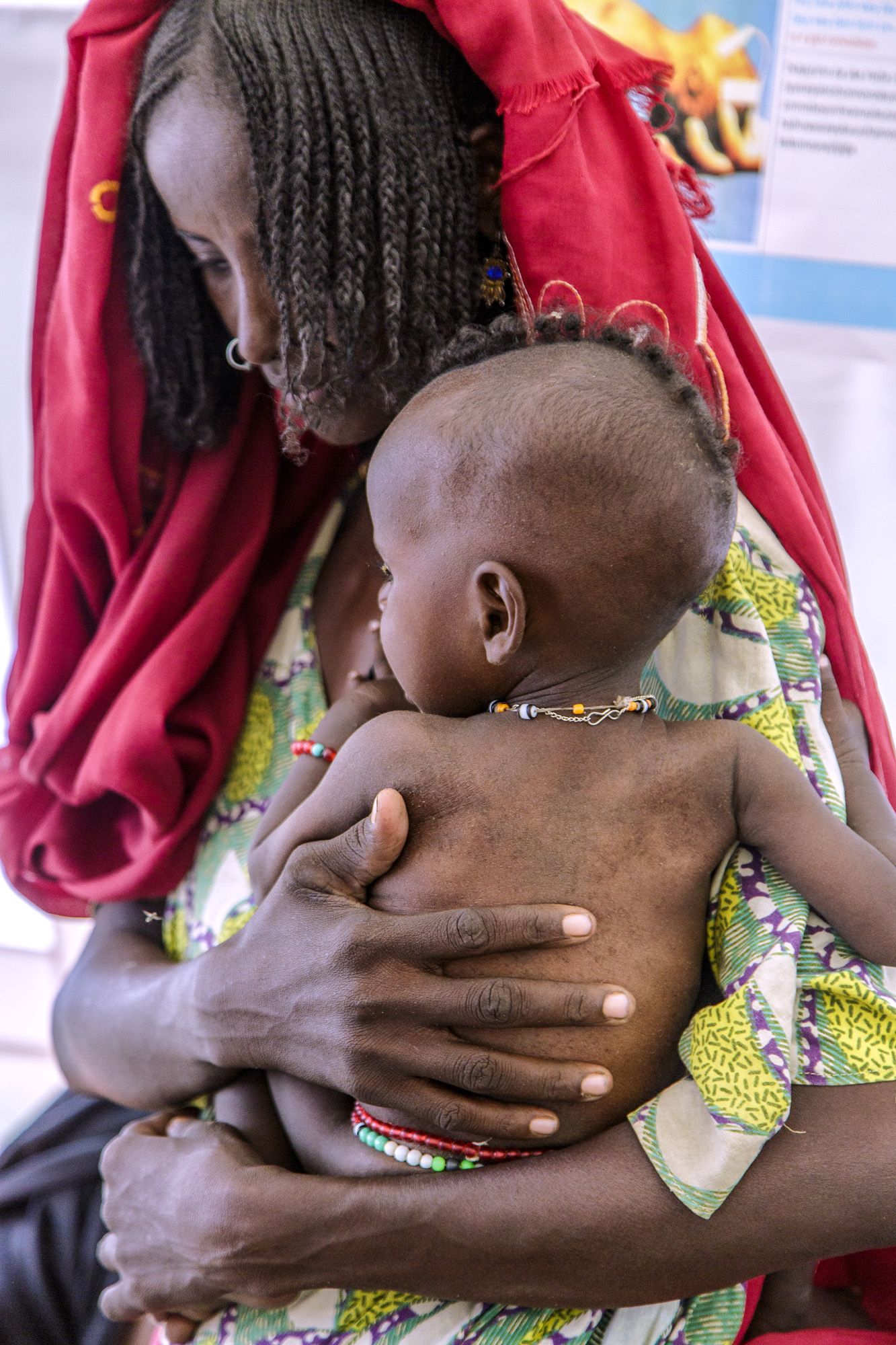
[SLIDESHOW=43274,43275]BORNO, Nigeria (BP) — The number of malnourished children in and around northeastern Nigeria will more than double by the end of 2016 under Boko Haram terrorism, UNICEF said in its latest report released today (Aug. 25).
By year’s end, more than 475,000 children are expected to suffer from severe acute malnutrition in the Lake Chad Basin comprising parts of Nigeria, Niger, Cameroon and Chad, up from 175,000 at the beginning of the year, UNICEF said. About 3.8 million people of all age groups are facing severe food shortages across the area.
“The Lake Chad crisis is a children’s crisis that should rank high on the global migration and displacement agenda. It is one of the world’s most neglected crises, and the children’s voices must be heard,” UNICEF said. “Given the magnitude of the crisis, there is an urgent need to scale up humanitarian assistance. New areas previously unreachable in northeast Nigeria are becoming accessible; the extent of the humanitarian needs is becoming more apparent and will likely grow.”
 Boko Haram, a terrorism group that has pledged allegiance to the Islamic State, has killed an estimated 25,000 and displaced 2.6 million people since 2009 in a quest to establish strict Sharia law across Nigeria, with many of the fatalities and displacements occurring since 2013.
Boko Haram, a terrorism group that has pledged allegiance to the Islamic State, has killed an estimated 25,000 and displaced 2.6 million people since 2009 in a quest to establish strict Sharia law across Nigeria, with many of the fatalities and displacements occurring since 2013.
“Communities in the Lake Chad Basin are among the poorest in the world, and the conflict has exacerbated the situation,” UNICEF said. “The situation might be even worse: as some of the areas previously under the control of Boko Haram insurgents become accessible, it is becoming evident that many more children are in desperate need of food and therapeutic treatment.”
UNICEF estimates 2.2 million people, over half of them children, might be trapped in remote, inaccessible areas under the control of Boko Haram.
Among the 244,000 children affected in northeast Nigeria’s Borno state alone, an estimated 49,000 could die this year without treatment for their malnutrition, UNICEF said in its report titled “Children on the move, children left behind. Uprooted or trapped by Boko Haram.” In Borno, 60 percent of health facilities are partially or completely destroyed, and 75 percent of water and sanitation facilities need to be repaired, the report said.
Boko Haram has also murdered children by using them as suicide bombers, using 38 of them as bombers through June of this year, compared to 44 in all of 2015, and four the previous year, UNICEF said. Children are believed to have comprised 24 percent of suicide bombers over the three years.
UNICEF released its report in advance of the UN General Assembly High Level Plenary Meeting on Large Scale Movements of Refugees and Migrants, set for Sept. 19 among the UN’s 193 member states. President Barack Obama is scheduled to host a Leaders’ Summit on Refugees the following day.
“As world leaders discuss the plight of refugees and migrants, they need to pay attention to this major displacement crisis and its profound impact on children,” the report said. “The international community needs to act urgently to scale up humanitarian assistance in the Lake Chad Basin.”
Although the region typically deals with malnutrition amid epidemics, droughts and floods, residents are helping internally displaced persons, the report said, with eight of 10 of them sheltered in host communities instead of camps.
“The vast majority are hosted by relatives, friends or neighbors who, in many cases, have themselves faced multiple crises, such as droughts and floods,” the report said. “Maiduguri, a city in northeast Nigeria with a population of 1 million, has already received more than 700,000 displaced people. In Cameroon’s Far North region, more than 190,000 displaced people are living in host communities, while Niger’s Diffa region has welcomed one displaced person for every two of its residents since the start of the crisis.”
The complete report is downloadable at unicef.org.














